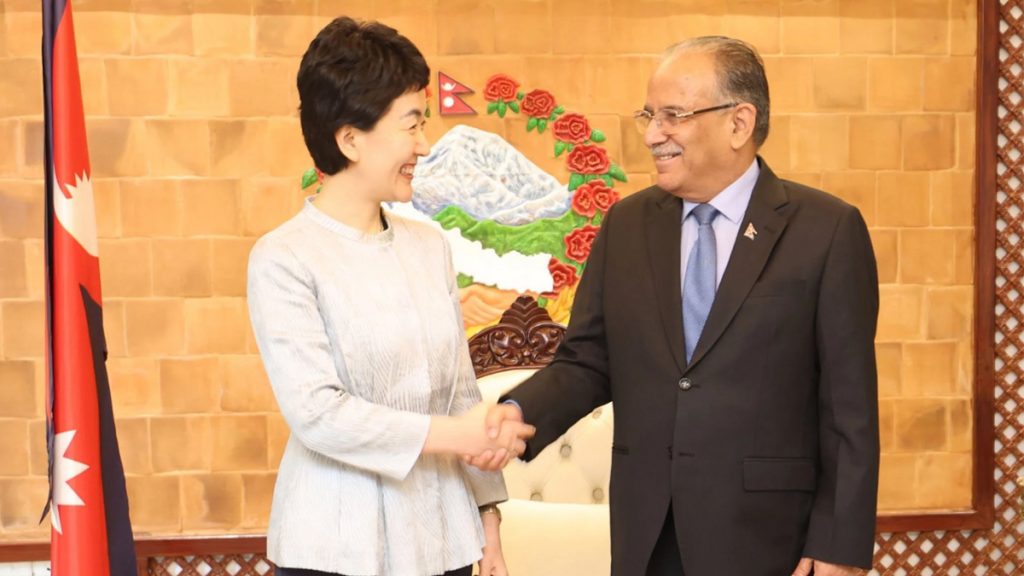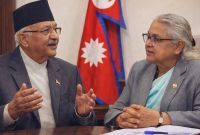BRI Fuels Debt Trap Fears in Nepal

Initial Enthusiasm
In December 2014, Nepal became the first South Asian nation to join China's Belt and Road Initiative (BRI), viewing it as a chance to enhance trade with China and develop its infrastructure. Under the leadership of Prime Minister **Sushil Koirala** of the Nepali Congress party, Nepal signed a preliminary agreement with China. The BRI promised to address two major challenges for Nepal:
Infrastructure Gap: Nepal's underdeveloped infrastructure hindered economic growth. The BRI offered significant investments in roads, railways, and hydropower projects.
Trade Dependency: Nepal heavily relied on India for trade. The BRI provided an opportunity to diversify trade routes and reduce this dependency.
Signing with Proactive Enthusiasm (May 12, 2017)
On May 12, 2017, Nepal formalized its participation in the BRI by signing a Memorandum of Understanding (MoU) with China. The MoU was signed by Foreign Minister Pradeep Gyawali during the premiership of K.P. Sharma Oli, who led a communist government. This move was met with optimism, and Nepal proposed 35 projects to improve its infrastructure.
Progress and Challenges
Since the MoU, progress on BRI projects has been slow due to funding disagreements. Nepal prefers grants while China typically offers commercial loans, leading to stalled negotiations. Transparency has also been an issue, with the details of the BRI agreements only becoming public years later.
In January 2023, a controversy arose over the Pokhara International Airport. The Chinese Ambassador to Nepal, Chen Song, claimed it was a "flagship project" of the BRI, but Nepal disputed this, stating the airport was funded by a Chinese loan that predated Nepal's official involvement in the BRI.
Funding Uncertainty and Controversy Cloud Nepal's BRI Journey
Nepal's engagement with the BRI has faced several challenges, including funding friction and transparency concerns. The heavy debt burden of commercial loans has been a sticking point, and the lack of transparency in agreements has raised public anxiety.
Current Status
Despite these challenges, Nepal recognizes the potential benefits of the BRI. However, Nepal seeks clearer financing terms and prefers a project-by-project approach, with only a few projects currently under consideration.
Looking Ahead
The future of the BRI in Nepal depends on China's willingness to address Nepal's concerns. Ensuring transparent funding, avoiding excessive debt, and prioritizing projects that align with Nepal's development goals are crucial for the BRI to contribute effectively to Nepal's aspirations.
Recent Developments
In December 2022, news reports indicated that the government under Prime Minister Sher Bahadur Deuba had not started formal negotiations on BRI projects or free trade agreements with China. In January 2023, Prime Minister Pushpa Kamal Dahal "Prachanda" inaugurated the Pokhara International Airport and showed openness to further cooperation, including a feasibility study for a China-Nepal cross-border railway.
Recently, Foreign Minister Narayan Kaji Shrestha claimed the government's policy is to implement the BRI, with reports of Chinese lobbying for BRI implementation through loans. However, the communist government led by Pushpa Kamal Dahal has recently collapsed due to a new agreement between the CPN UML and Nepali Congress.
China In Nepal



![From Kathmandu to the World: How Excel Students Are Winning Big [Admission Open]](https://nepalaaja.com/img/70194/medium/excel-college-info-eng-nep-2342.jpg)
